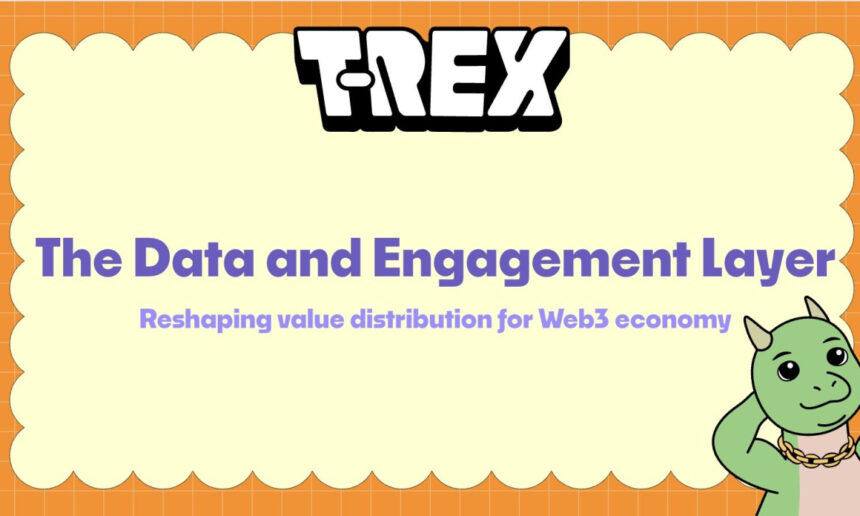In a significant advancement for the Web3 ecosystem, T-REX has officially launched its data and engagement infrastructure aimed at addressing inefficiencies in value distribution within the blockchain space. Backed by a robust $17 million investment from notable firms such as Arbitrum Gaming Ventures, Framework Ventures, North Island Ventures, and Portal Ventures, T-REX seeks to revolutionize how projects interact with users, fostering stronger community growth and enhancing the sustainability of token ecosystems.
One of the critical issues observed in the crypto landscape has been the misalignment of incentives. Despite rapid technological advancements—including faster blockchain networks, reduced transaction fees, and scalable settlement options—the methods for distributing value and incentives within Web3 have remained fundamentally flawed. Token launches frequently experience an initial surge in activity, followed by dramatic declines in both price and community engagement. Current strategies often prioritize short-term participation, neglecting the contributions of genuine long-term users.
Joyce Yim, CEO and co-founder of T-REX, highlighted the limitations of traditional mechanisms like airdrops and point systems, which often draw opportunistic actors rather than dedicated participants. These strategies create high costs with little retention, demonstrating a clear need for more sophisticated approaches.
T-REX introduces an innovative solution in the form of the 5D Persona, a dynamic and privacy-preserving profile that encapsulates users’ demographics, assets, social signals, interests, and knowledge. Unlike traditional decentralized identity (DID) systems, these personas adapt over time, leading to a more accurate representation of users. This rich profiling feeds into the platform’s Intelligence Flywheel, creating a continuous feedback loop that matches users to appropriate projects, adjusts incentive levels, and quantifies actual contributions. This data-driven method aims to reduce fraudulent activity and enhance overall return on investment.
Amidst a competitive landscape of identity and engagement tools in Web3—including decentralized identifiers and analytics platforms—T-REX distinguishes itself by being a holistic system that integrates identity, attribution, and incentive distribution within a unified framework. “Most tools today focus on one piece of the puzzle, whether it’s identity verification or campaign management. We are building the infrastructure that connects them to facilitate efficient value flow across the entire ecosystem,” Yim stated.
As part of its innovative offerings, T-REX is set to launch the Rexy NFT collection, comprising 3,333 unique NFTs on Arbitrum, slated for release in October. Rexy will serve as the first contribution-proof NFT, deeply linked with T-REX’s core intelligence engine. Unlike typical NFT sales, Rexy won’t be available for public purchase; its distribution will be determined by the platform’s data systems. The Intelligence Flywheel will evaluate user personas, rewarding those who have made significant contributions to Web3 and align closely with the long-term health of the ecosystem.
This initiative marks a paradigm shift from viewing NFTs merely as collectibles to recognizing them as cultural markers of verified achievement within digital communities.
In summary, T-REX is on a mission to create a new data and engagement layer for Web3 that could fundamentally reshape how value is distributed across various platforms. With its focus on user personas and an integrated intelligence engine, T-REX is well-positioned to tackle the long-standing inefficiencies of Web3 economics and empower both creators and users to engage meaningfully in the ecosystem.







